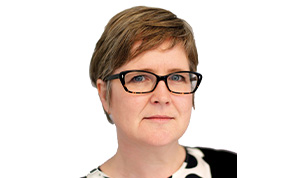Providers call for capital funding boost and reform
 In a briefing setting out the case for increased funding and changes in the capital regime, the providers’ organisation said the NHS needed wide-ranging investment across estates and facilities. This would address the ‘alarming’ maintenance backlog, and to help it respond to rising elective care waiting times and increasing demand in emergency departments. At least an extra £1.5bn by 2024/25 was needed, and this minimum level would allow the NHS to transform services and improve access to care.
In a briefing setting out the case for increased funding and changes in the capital regime, the providers’ organisation said the NHS needed wide-ranging investment across estates and facilities. This would address the ‘alarming’ maintenance backlog, and to help it respond to rising elective care waiting times and increasing demand in emergency departments. At least an extra £1.5bn by 2024/25 was needed, and this minimum level would allow the NHS to transform services and improve access to care.
The briefing, Rebuilding our NHS: the case for capital funding, highlights a recent survey where finance directors said they had insufficient access to capital and needed more freedom over capital spending. Eight in 10 finance directors (78%) had little confidence they would get access to sufficient capital to transform services in line with the NHS long-term plan.
More than two-thirds (67%) believed they would not get sufficient capital to address their backlog maintenance (which totals £9bn), or improve digital infrastructure. A similar proportion agreed or strongly agreed that funds were available, but national or system capital limits restricted their ability to invest in capital projects.
A number of points were raised by finance directors, including doubts that the capital available will meet all competing demands. One acute and community trust finance director told NHS Providers: ‘The level of capital that is going to be required in the future for digital changes totally outstrips the envelope that can realistically be allocated to digital after ensuring high-risk backlog areas are addressed.’
Another combined trust director feared for the funding of medium-sized capital projects as national policy covered only small and very large schemes. ‘There is currently no national direction of middle size capital funding,’ they said.
‘Integrated care system (ICS) allocations arguably fund backlog maintenance and small projects to maintain the status quo of service delivery and at the other end of the financial spectrum there is the hospital improvement programme large scale developments. There is currently a void with regards to, say, £20m-£70m projects that fall in between, but for which there are a large number. In our ICS there are several in this category without a clear funding plan identified.’
Some respondents said the government was giving too much weight to national programmes, such as the plan for 40 new hospitals.
PFI concern
One acute trust finance director was concerned about the impact of historical private finance initiative debt. ‘The capital regime is based on internally generated depreciation. As a provider with a large PFI debt this is significantly limiting the level of capital funding the system can access and directly limiting the future investment,’ they said.
NHS Providers said a multi-year capital settlement was needed – ideally lasting at least 10 years. The system for accessing and allocating capital should be reformed, it insisted, with decision-making devolved to the level where service accountability sits, wherever possible.
The provider organisation added that additional capital would give the health service the funds to increase the capacity of its buildings, create a network of diagnostic hubs, reconfigure hospitals to allow them to deal with winter pressures and further waves of Covid-19, create safe environments for mental health services, and invest in the buildings and equipment needed to implement new methods of care.
Extra capital would bring other benefits, including supporting the NHS move to net zero – funding zero emission ambulances or introducing greener heating, for example – and the levelling-up agenda.
Saffron Cordery (pictured), the deputy chief executive of NHS Providers, said capital investment led to substantial and wide-ranging benefits.
And she added: ‘With the right level of investment, the NHS could play an even bigger role in turning the government’s ambitions for net zero and “levelling up” from ambition to reality.’
Providers acknowledged the NHS had received additional capital allocations recently, including the £500m for the second half of the current financial year to increase theatre capacity and technology
Ms Cordery continued: ‘To deliver the benefits we all want, that investment must be underpinned by appropriate capital funding – a critical piece of the jigsaw - to help bring long neglected parts of the NHS estate into the 21st century.
‘This must be alongside a multi-year capital settlement for the NHS. The NHS cannot go from year to year not knowing how much capital it is going to get. This is far from ideal for a service that needs to plan for the future so it can best meet a complex array of patients’ needs.
Related content
We are excited to bring you a fun packed Eastern Branch Conference in 2025 over three days.
This event is for those that will benefit from an overview of costing in the NHS or those new to costing and will cover why we cost and the processes.